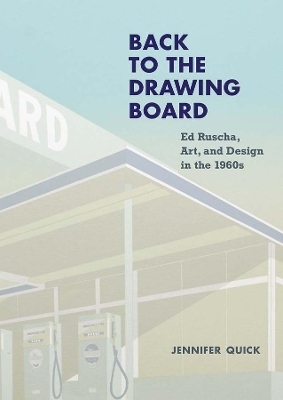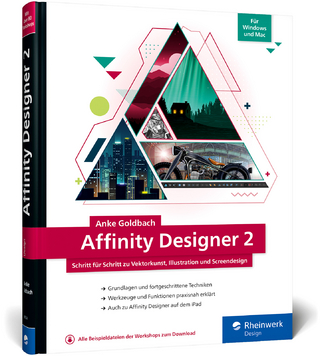
Back to the Drawing Board
Ed Ruscha, Art, and Design in the 1960s
Seiten
2022
Yale University Press (Verlag)
978-0-300-25692-5 (ISBN)
Yale University Press (Verlag)
978-0-300-25692-5 (ISBN)
The first book to consider the importance of commercial art and design for Ed Ruscha’s work
Ed Ruscha (b. 1937) emerged onto the Los Angeles art scene with paintings that incorporated consumer products, such as Spam and Sun-Maid raisins. In this revelatory book, Jennifer Quick looks at and beyond the consumer imagery in Ruscha’s work, examining it through the tools, techniques, and habits of mind of commercial art and design. Quick shows how his training and early work as a commercial artist helped him become an incisive commentator on the presence and role of design in the modern world.
Back to the Drawing Board explores how Ruscha mobilized commercial design techniques of scale, paste-up layout, and perspective as he developed his singular artistic style. Beginning with his formative design education and focusing on the first decade of his career, Quick analyzes previously unseen works from the Ruscha archives alongside his celebrated paintings, prints, and books, demonstrating how Ruscha’s engagement with commercial art has been foundational to his practice. Through this insightful lens, Quick affirms Ruscha as a powerful and witty observer of the vast network of imagery that permeates visual culture and offers new perspectives on Pop and conceptual art.
Ed Ruscha (b. 1937) emerged onto the Los Angeles art scene with paintings that incorporated consumer products, such as Spam and Sun-Maid raisins. In this revelatory book, Jennifer Quick looks at and beyond the consumer imagery in Ruscha’s work, examining it through the tools, techniques, and habits of mind of commercial art and design. Quick shows how his training and early work as a commercial artist helped him become an incisive commentator on the presence and role of design in the modern world.
Back to the Drawing Board explores how Ruscha mobilized commercial design techniques of scale, paste-up layout, and perspective as he developed his singular artistic style. Beginning with his formative design education and focusing on the first decade of his career, Quick analyzes previously unseen works from the Ruscha archives alongside his celebrated paintings, prints, and books, demonstrating how Ruscha’s engagement with commercial art has been foundational to his practice. Through this insightful lens, Quick affirms Ruscha as a powerful and witty observer of the vast network of imagery that permeates visual culture and offers new perspectives on Pop and conceptual art.
Jennifer Quick was previously research curator in Special Collections at the Harvard Business School’s Baker Library and the John R. and Barbara Robinson Family Associate Research Curator at the Harvard Art Museums.
| Erscheinungsdatum | 06.04.2022 |
|---|---|
| Zusatzinfo | 95 color + 37 b-w illus. |
| Sprache | englisch |
| Maße | 178 x 254 mm |
| Themenwelt | Kunst / Musik / Theater ► Design / Innenarchitektur / Mode |
| Kunst / Musik / Theater ► Kunstgeschichte / Kunststile | |
| Mathematik / Informatik ► Informatik ► Grafik / Design | |
| ISBN-10 | 0-300-25692-2 / 0300256922 |
| ISBN-13 | 978-0-300-25692-5 / 9780300256925 |
| Zustand | Neuware |
| Haben Sie eine Frage zum Produkt? |
Mehr entdecken
aus dem Bereich
aus dem Bereich
Schritt für Schritt zu Vektorkunst, Illustration und Screendesign
Buch | Hardcover (2023)
Rheinwerk (Verlag)
39,90 €
Fit für Studium und Ausbildung
Buch | Softcover (2022)
Rheinwerk (Verlag)
24,90 €


